- Home
- Philip Pullman
The Amber Spyglass: His Dark Materials Page 9
The Amber Spyglass: His Dark Materials Read online
Page 9
One of them wheeled to the edge of the road and raised its trunk to utter a trumpeting call. The herd of grazers all looked up as one and began to trot toward them. When they arrived, they stood patiently at the verge and let the wheeled creatures move slowly through them, checking, touching, counting.
Then Mary saw one reach beneath a grazer and milk it with her trunk; and then the wheeled one rolled over to her and raised her trunk delicately to Mary’s mouth.
At first she flinched, but there was an expectation in the creature’s eye, so she came forward again and opened her lips. The creature expressed a little of the sweet, thin milk into her mouth, watched her swallow, and gave her some more, again and again. The gesture was so clever and kindly that Mary impulsively put her arms around the creature’s head and kissed her, smelling the hot, dusty hide and feeling the hard bones underneath and the muscular power of the trunk.
Presently the leader trumpeted softly and the grazers moved away. The mulefa were preparing to leave. She felt joy that they had welcomed her, and sadness that they were leaving; but then she felt surprise as well.
One of the creatures was lowering itself, kneeling down on the road, and gesturing with its trunk, and the others were beckoning and inviting her . . . No doubt about it: they were offering to carry her, to take her with them.
Another took her rucksack and fastened it to the saddle of a third, and awkwardly Mary climbed on the back of the kneeling one, wondering where to put her legs—in front of the creature’s, or behind? And what could she hold on to?
But before she could work it out, the creature had risen, and the group began to move away along the highway, with Mary riding among them.
because he’s Will.”
EIGHT
VODKA
I have been a stranger in a strange land.
• EXODUS •
Balthamos felt the death of Baruch the moment it happened. He cried aloud and soared into the night air over the tundra, flailing his wings and sobbing his anguish into the clouds; and it was some time before he could compose himself and go back to Will, who was wide awake, knife in hand, peering up into the damp and chilly murk. They were back in Lyra’s world.
“What is it?” said Will as the angel appeared trembling beside him. “Is it danger? Get behind me—”
“Baruch is dead,” cried Balthamos, “my dear Baruch is dead—”
“When? Where?”
But Balthamos couldn’t tell; he only knew that half his heart had been extinguished. He couldn’t keep still: he flew up again, scouring the sky as if to seek out Baruch in this cloud or that, calling, crying, calling; and then he’d be overcome with guilt, and fly down to urge Will to hide and keep quiet, and promise to watch over him tirelessly; and then the pressure of his grief would crush him to the ground, and he’d remember every instance of kindness and courage that Baruch had ever shown, and there were thousands, and he’d forgotten none of them; and he’d cry that a nature so gracious could never be snuffed out, and he’d soar into the skies again, casting about in every direction, reckless and wild and stricken, cursing the very air, the clouds, the stars.
Finally Will said, “Balthamos, come here.”
The angel came at his command, helpless. Shivering inside his cloak, in the bitter cold gloom of the tundra, the boy said to him, “You must try to keep quiet now. You know there are things out there that’ll attack if they hear a noise. I can protect you with the knife if you’re nearby, but if they attack you up there, I won’t be able to help. And if you die, too, that’ll be the end for me. Balthamos, I need you to help guide me to Lyra. Please don’t forget that. Baruch was strong—be strong, too. Be like him for me.”
At first Balthamos didn’t speak, but then he said, “Yes. Yes, of course I must. Sleep now, Will, and I shall stand guard, I shan’t fail you.”
Will trusted him; he had to. And presently he fell asleep again.
When he woke up, soaked with dew and cold to his bones, the angel was standing nearby. The sun was just rising, and the reeds and the marsh plants were all tipped with gold.
Before Will could move, Balthamos said, “I’ve decided what I must do. I shall stay with you day and night, and do it cheerfully and willingly, for the sake of Baruch. I shall guide you to Lyra, if I can, and then I shall guide you both to Lord Asriel. I have lived thousands of years, and unless I am killed, I shall live many thousands of years more; but I never met a nature that made me so ardent to do good, or to be kind, as Baruch’s did. I failed so many times, but each time his goodness was there to redeem me. Now it’s not, I shall have to try without it. Perhaps I shall fail from time to time, but I shall try all the same.”
“Then Baruch would be proud of you,” said Will, shivering.
“Shall I fly ahead now and see where we are?”
“Yes,” said Will, “fly high, and tell me what the land’s like farther on. Walking on this marshland is going to take forever.”
Balthamos took to the air. He hadn’t told Will everything he was anxious about, because he was trying to do his best and not worry him; but he knew that the angel Metatron, the Regent, from whom they’d escaped so narrowly, would have Will’s face firmly imprinted on his mind. And not only his face, but everything about him that angels were able to see, including parts of which Will himself was not aware, such as that aspect of his nature Lyra would have called his dæmon. Will was in great danger from Metatron now, and at some time Balthamos would have to tell him; but not quite yet. It was too difficult.
Will, reckoning that it would be quicker to get warm by walking than by gathering fuel and waiting for a fire to catch, simply slung the rucksack over his shoulders, wrapped the cloak around everything, and set off toward the south. There was a path, muddy and rutted and potholed, so people did sometimes come this way; but the flat horizon was so far away on every side that he had little sense of making progress.
Sometime later, when the light was brighter, Balthamos’s voice spoke beside him.
“About half a day’s walk ahead, there is a wide river and a town, where there’s a wharf for boats to tie up. I flew high enough to see that the river goes a long way directly south and north. If you could get a passage, then you could move much more quickly.”
“Good,” said Will fervently. “And does this path go to the town?”
“It goes through a village, with a church and farms and orchards, and then on to the town.”
“I wonder what language they speak. I hope they don’t lock me up if I can’t speak theirs.”
“As your dæmon,” said Balthamos, “I shall translate for you. I have learned many human languages; I can certainly understand the one they speak in this country.”
Will walked on. The toil was dull and mechanical, but at least he was moving, and at least every step took him closer to Lyra.
The village was a shabby place: a huddle of wooden buildings, with paddocks containing reindeer, and dogs that barked as he approached. Smoke crept out of the tin chimneys and hung low over the shingled roofs. The ground was heavy and dragged at his feet, and there had obviously been a recent flood: walls were marked with mud to halfway up the doors, and broken beams of wood and loose-hanging sheets of corrugated iron showed where sheds and verandas and outbuildings had been swept away.
But that was not the most curious feature of the place. At first he thought he was losing his balance—it even made him stumble once or twice—for the buildings were two or three degrees out of the vertical, all leaning the same way. The dome of the little church had cracked badly. Had there been an earthquake?
Dogs were barking with hysterical fury, but not daring to come close. Balthamos, being a dæmon, had taken the form of a large snow white dog with black eyes, thick fur, and tight-curled tail, and he snarled so fiercely that the real dogs kept their distance. They were thin and mangy, and the few reindeer Will could see were scabby-coated and listless.
Will paused in the center of the little village and looked around,
wondering where to go, and as he stood there, two or three men appeared ahead and stood staring at him. They were the first people he had ever seen in Lyra’s world. They wore heavy felt coats, muddy boots, and fur hats, and they didn’t look friendly.
The white dog changed into a sparrow and flew to Will’s shoulder. No one blinked an eye at this: each of the men had a dæmon, Will saw, dogs, most of them, and that was how things happened in this world. On his shoulder, Balthamos whispered: “Keep moving. Don’t look them in the eye. Keep your head down. That is the respectful thing to do.”
Will kept walking. He could make himself inconspicuous; it was his greatest talent. By the time he got to them, the men had already lost interest in him. But then a door opened in the biggest house in the road, and a voice called something loudly.
Balthamos said softly, “The priest. You will have to be polite to him. Turn and bow.”
Will did so. The priest was an immense, gray-bearded man, wearing a black cassock, with a crow dæmon on his shoulder. His restless eyes moved over Will’s face and body, taking everything in. He beckoned.
Will went to the doorway and bowed again.
The priest said something, and Balthamos murmured, “He’s asking where you come from. Say whatever you like.”
“I speak English,” Will said slowly and clearly. “I don’t know any other languages.”
“Ah, English!” cried the priest gleefully in English. “My dear young man! Welcome to our village, our little no-longer-perpendicular Kholodnoye! What is your name, and where are you going?”
“My name is Will, and I’m going south. I have lost my family, and I’m trying to find them again.”
“Then you must come inside and have some refreshment,” said the priest, and put a heavy arm around Will’s shoulders, pulling him in through the doorway.
The man’s crow dæmon was showing a vivid interest in Balthamos. But the angel was equal to that: he became a mouse and crept into Will’s shirt as if he were shy.
The priest led him into a parlor heavy with tobacco smoke, where a cast-iron samovar steamed quietly on a side table.
“What was your name?” said the priest. “Tell me again.”
“Will Parry. But I don’t know what to call you.”
“Otyets Semyon,” said the priest, stroking Will’s arm as he guided him to a chair. “Otyets means Father. I am a priest of the Holy Church. My given name is Semyon, and the name of my father was Boris, so I am Semyon Borisovitch. What is your father’s name?”
“John Parry.”
“John is Ivan. So you are Will Ivanovitch, and I am Father Semyon Borisovitch. Where have you come from, Will Ivanovitch, and where are you going?”
“I’m lost,” Will said. “I was traveling with my family to the south. My father is a soldier, but he was exploring in the Arctic, and then something happened and we got lost. So I’m traveling south because I know that’s where we were going next.”
The priest spread his hands and said, “A soldier? An explorer from England? No one so interesting as that has trodden the dirty roads of Kholodnoye for centuries, but in this time of upheaval, how can we know that he will not appear tomorrow? You yourself are a welcome visitor, Will Ivanovitch. You must stay the night in my house and we will talk and eat together. Lydia Alexandrovna!” he called.
An elderly woman came in silently. He spoke to her in Russian, and she nodded and took a glass and filled it with hot tea from the samovar. She brought the glass of tea to Will, together with a little saucer of jam with a silver spoon.
“Thank you,” said Will.
“The conserve is to sweeten the tea,” said the priest. “Lydia Alexandrovna made it from bilberries.”
The result was that the tea was sickly as well as bitter, but Will sipped it, nonetheless. The priest kept leaning forward to look closely at him, and felt his hands to see whether he was cold, and stroked his knee. In order to distract him, Will asked why the buildings in the village sloped.
“There has been a convulsion in the earth,” the priest said. “It is all foretold in the Apocalypse of St. John. Rivers flow backward . . . The great river only a short way from here used to flow north into the Arctic Ocean. All the way from the mountains of central Asia it flowed north for thousands and thousands of years, ever since the Authority of God the Almighty Father created the earth. But when the earth shook and the fog and the floods came, everything changed, and then the great river flowed south for a week or more before it turned again and went north. The world is turned upside down. Where were you when the great convulsion came?”
“A long way from here,” Will said. “I didn’t know what was happening. When the fog cleared, I had lost my family and I don’t know where I am now. You’ve told me the name of this place, but where is it? Where are we?”
“Bring me that large book on the bottom shelf,” said Semyon Borisovitch. “I will show you.”
The priest drew his chair up to the table and licked his fingers before turning the pages of the great atlas.
“Here,” he said, pointing with a dirty fingernail at a spot in central Siberia, a long way east of the Urals. The river nearby flowed, as the priest had said, from the northern part of the mountains in Tibet all the way to the Arctic. He looked closely at the Himalaya, but he could see nothing like the map Baruch had sketched.
Semyon Borisovitch talked and talked, pressing Will for details of his life, his family, his home, and Will, a practiced dissembler, answered him fully enough. Presently the housekeeper brought in some beetroot soup and dark bread, and after the priest had said a long grace, they ate.
“Well, how shall we pass our day, Will Ivanovitch?” said Semyon Borisovitch. “Shall we play at cards, or would you prefer to talk?”
He drew another glass of tea from the samovar, and Will took it doubtfully.
“I can’t play cards,” he said, “and I’m anxious to get on and keep traveling. If I went to the river, for example, do you think I could find a passage on a steamer going south?”
The priest’s huge face darkened, and he crossed himself with a delicate flick of the wrist.
“There is trouble in the town,” he said. “Lydia Alexandrovna has a sister who came here and told her there is a boat carrying bears up the river. Armored bears. They come from the Arctic. You did not see armored bears when you were in the north?”
The priest was suspicious, and Balthamos whispered so quietly that only Will could hear: “Be careful.” And Will knew at once why he’d said it: his heart had begun to pound when Semyon Borisovitch mentioned the bears, because of what Lyra had told him about them. He must try to contain his feelings.
He said, “We were a long way from Svalbard, and the bears were occupied with their own affairs.”
“Yes, that is what I heard,” said the priest, to Will’s relief. “But now they are leaving their homeland and coming south. They have a boat, and the people of the town will not let them refuel. They are afraid of the bears. And so they should be—they are children of the devil. All things from the north are devilish. Like the witches—daughters of evil! The Church should have put them all to death many years ago. Witches—have nothing to do with them, Will Ivanovitch, you hear me? You know what they will do when you come to the right age? They will try to seduce you. They will use all the soft, cunning, deceitful ways they have, their flesh, their soft skin, their sweet voices, and they will take your seed—you know what I mean by that—they will drain you and leave you hollow! They will take your future, your children that are to come, and leave you nothing. They should be put to death, every one.”
The priest reached across to the shelf beside his chair and took down a bottle and two small glasses.
“Now I am going to offer you a little drink, Will Ivanovitch,” he said. “You are young, so not very many glasses. But you are growing, and so you need to know some things, like the taste of vodka. Lydia Alexandrovna collected the berries last year, and I distilled the liquor, and here in the bottle is
the result, the only place where Otyets Semyon Borisovitch and Lydia Alexandrovna lie together!”
He laughed and uncorked the bottle, filling each glass to the rim. This kind of talk made Will hideously uneasy. What should he do? How could he refuse to drink without discourtesy?
“Otyets Semyon,” he said, standing, “you have been very kind, and I wish I could stay longer to taste your drink and to hear you talk, because what you tell me has been very interesting. But you understand I am unhappy about my family, and very anxious to find them again, so I think I must move on, much as I would like to stay.”
The priest pushed out his lips, in the thicket of his beard, and frowned; but then he shrugged and said, “Well, you shall go if you must. But before you leave, you must drink your vodka. Stand with me now! Take it, and down all in one, like this!”
He threw back the glass, swallowing it all at once, and then hauled his massive body up and stood very close to Will. In his fat, dirty fingers the glass he held out seemed tiny; but it was brimming with the clear spirit, and Will could smell the heady tang of the drink and the stale sweat and the food stains on the man’s cassock, and he felt sick before he began.
“Drink, Will Ivanovitch!” the priest cried, with a threatening heartiness.
Will lifted the glass and unhesitatingly swallowed the fiery, oily liquid in one gulp. Now he would have to fight hard to avoid being sick.
There was one more ordeal to come. Semyon Borisovitch leaned forward from his great height, and took Will by both shoulders.
“My boy,” he said, and then closed his eyes and began to intone a prayer or a psalm. Vapors of tobacco and alcohol and sweat came powerfully from him, and he was close enough for his thick beard, wagging up and down, to brush Will’s face. Will held his breath.
The priest’s hands moved behind Will’s shoulders, and then Semyon Borisovitch was hugging him tightly and kissing his cheeks, right, left, right again. Will felt Balthamos dig tiny claws into his shoulder, and kept still. His head was swimming, his stomach lurching, but he didn’t move.

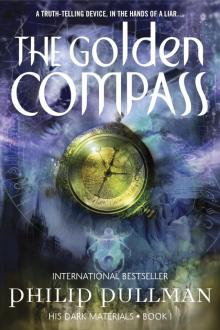 The Golden Compass
The Golden Compass The Ruby in the Smoke
The Ruby in the Smoke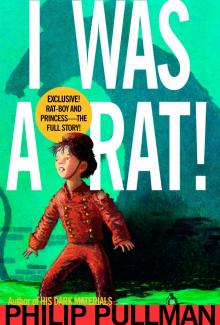 I Was a Rat!
I Was a Rat!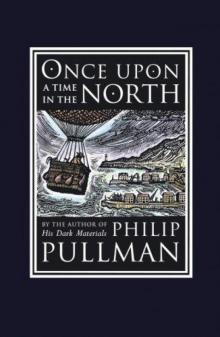 Once Upon a Time in the North
Once Upon a Time in the North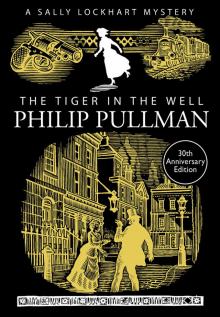 The Tiger in the Well
The Tiger in the Well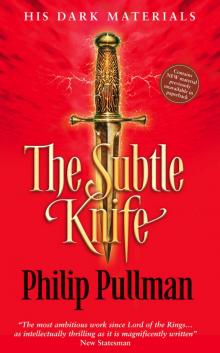 The Subtle Knife
The Subtle Knife The Butterfly Tattoo
The Butterfly Tattoo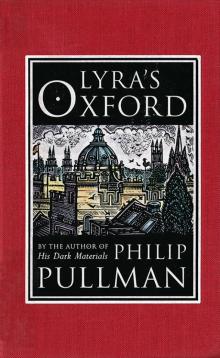 Lyra's Oxford
Lyra's Oxford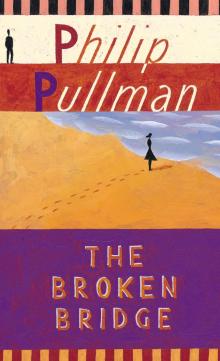 The Broken Bridge
The Broken Bridge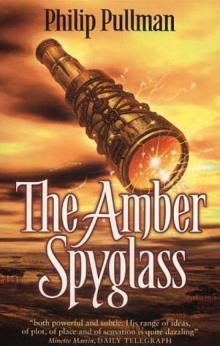 The Amber Spyglass
The Amber Spyglass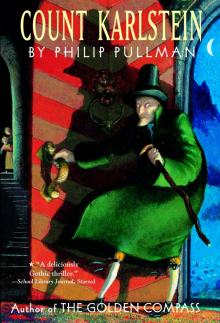 Count Karlstein
Count Karlstein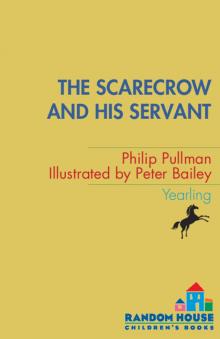 The Scarecrow and His Servant
The Scarecrow and His Servant The Shadow in the North
The Shadow in the North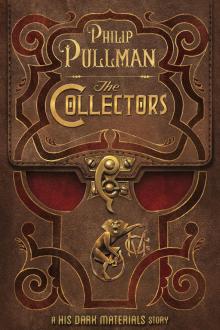 The Collectors
The Collectors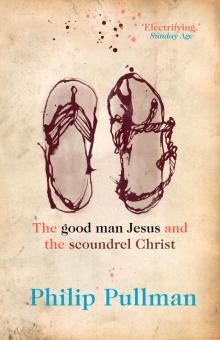 The Good Man Jesus and the Scoundrel Christ
The Good Man Jesus and the Scoundrel Christ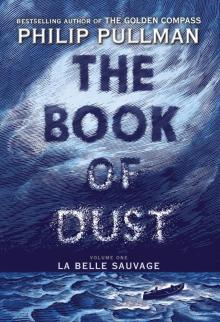 La Belle Sauvage
La Belle Sauvage The Tin Princess
The Tin Princess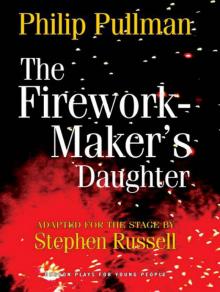 The Firework-Maker's Daughter
The Firework-Maker's Daughter The Book of Dust: The Secret Commonwealth (Book of Dust, Volume 2)
The Book of Dust: The Secret Commonwealth (Book of Dust, Volume 2)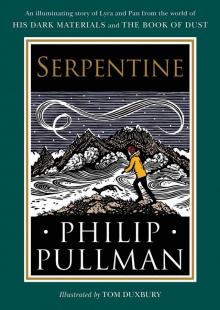 Serpentine
Serpentine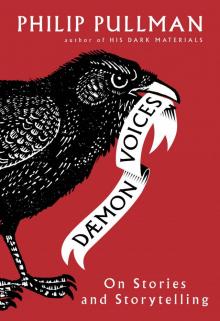 Daemon Voices
Daemon Voices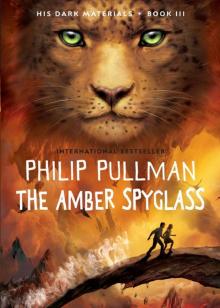 The Amber Spyglass: His Dark Materials
The Amber Spyglass: His Dark Materials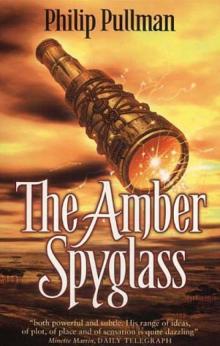 The Amber Spyglass hdm-3
The Amber Spyglass hdm-3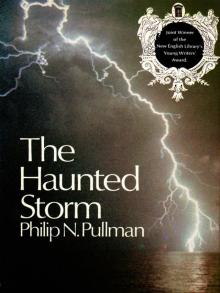 The Haunted Storm
The Haunted Storm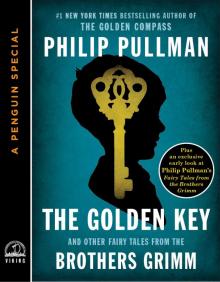 The Golden Key
The Golden Key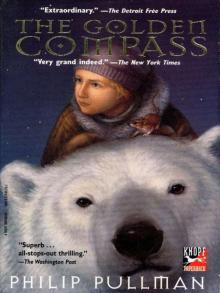 His Dark Materials 01 - The Golden Compass
His Dark Materials 01 - The Golden Compass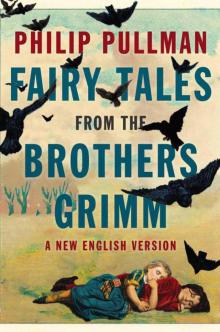 Fairy Tales from the Brothers Grimm: A New English Version
Fairy Tales from the Brothers Grimm: A New English Version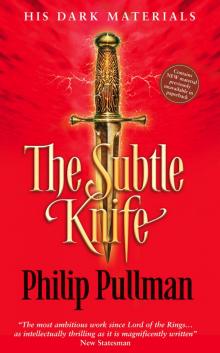 His Dark Materials 02 - The Subtle Knife
His Dark Materials 02 - The Subtle Knife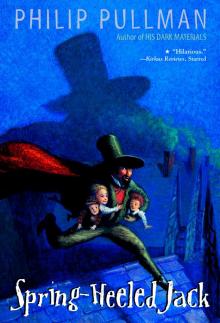 Spring-Heeled Jack
Spring-Heeled Jack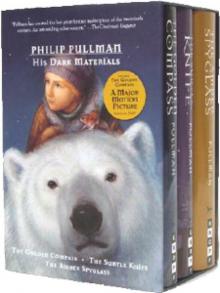 The Golden Compass hdm-1
The Golden Compass hdm-1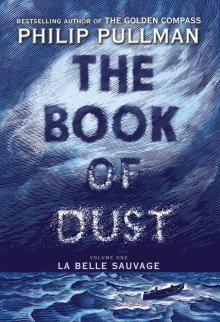 The Book of Dust, Volume 1
The Book of Dust, Volume 1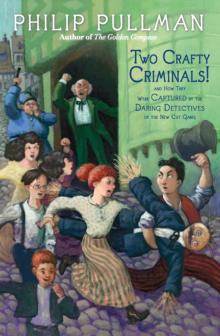 Two Crafty Criminals!
Two Crafty Criminals!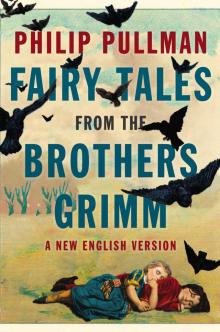 Fairy Tales from the Brothers Grimm
Fairy Tales from the Brothers Grimm The Subtle Knife: His Dark Materials
The Subtle Knife: His Dark Materials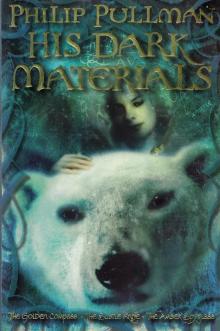 His Dark Materials Omnibus
His Dark Materials Omnibus The Golden Compass: His Dark Materials
The Golden Compass: His Dark Materials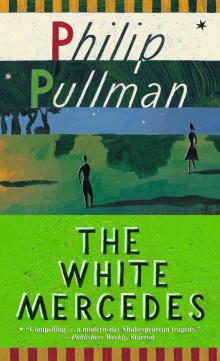 The White Mercedes
The White Mercedes